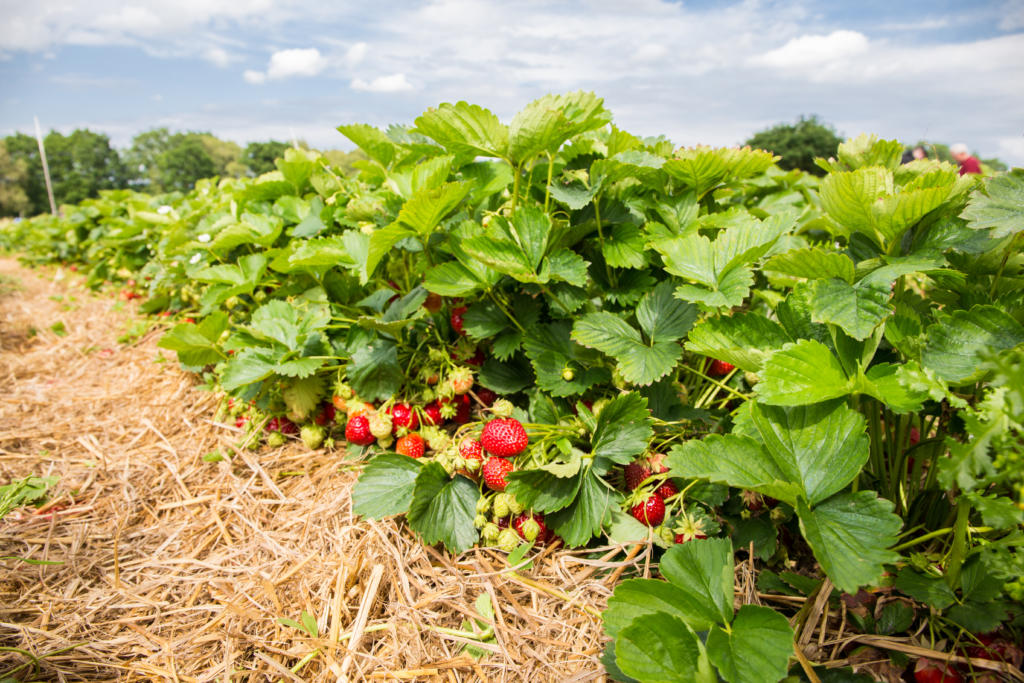
Former farming minister George Eustice, MP has joined the ranks of people calling for an extension and expansion to the agricultural seasonal workers scheme. Immigration lawyer from Stephens Scown, Lisa Mulholland agrees that the scheme does not go far enough.
The two-year pilot scheme will allow 2,500 non EU migrant farmworkers into the UK to work on farms for up to six months during peak times of year.
There is a suggestion that the scheme will be extended at the end of the pilot period but Mr Eustace and others are calling for it to be expanded to allow more migrant farmworkers to enter the UK, much sooner than that.
A step in the right direction
The first time the UK needed a seasonal agriculture workers scheme was during the labour shortages after World War Two, when there were fears that food would lie unpicked and rot in the fields. Some people in the rural sector fear the same thing happening again due to Brexit-related worker shortages; but does the pilot scheme do enough to reassure them?
Although it is definitely a step in the right direction, in my view it does not go far enough. As an immigration lawyer I see first hand from my agriculture clients how damaging the uncertainty of Brexit has been and how challenging it has made managing their workforces.
Farmers from across the UK have reported a slowdown in the recruitment of EU workers since the referendum. National Farmers’ Union (NFU) figures show that the shortfall of seasonal workers in July 2018 was 10 per cent, with that figure expected to increase.
2,500 visas per year is not enough
So what does the new scheme offer? The pilot scheme grants six month visas for 2,500 non-EU workers a year to work on fruit and vegetable farms in the UK. The initiative is now up and running as of 6 March 2019 and will remain open until December 2020. The first workers are due to start arriving in the UK at the end of this month. Government ministers hope that it will help to tackle labour shortages during peak production periods, but it has been met with a mixed response from the farming community.
While it is encouraging that the Government has listened to the industry – most notably a two year lobbying campaign led by the NFU – 2,500 visas per year is simply not enough.
When you consider that it is estimated that the UK needs 80,000 seasonal workers and many of these jobs remain unfilled, 2,500 is a drop in the ocean. It is well known that farming businesses find it hard to recruit UK workers for this seasonal work. It is hoped that the new farming vocational qualification will go some way to help encourage more young people into the industry, who may consider this kind of work as a step on the ladder. However, as commendable as the qualification is, it will not deliver the numbers needed.
The introduction of new technology to reduce the need for seasonal workers to bring in the harvest has not yet had a big impact. In fact it is estimated that by 2020 the number of seasonal workers required will rise to 90,000.
Scheme restrictions
Numbers of visas aside, restricting the scheme to vegetable and fruit farms is also a concern. Other agricultural sectors also need additional workers at certain times of year. For example poultry farmers need thousands of extra workers in the run up to Christmas.
Some farming leaders have also expressed worries about the six month restriction. With the range of crops grown in the UK, some growers need access to seasonal labour all year round.
Only two scheme operators – Concordia and Pro-Force – have been licenced to manage the pilot in terms of identifying suitable workers and matching them to UK farmers. They will also be required to ensure the welfare of the workers whilst they are in the UK. The government have placed a duty on the scheme operators to ensure that all regions of the UK are able to benefit from the scheme.
The pilot scheme is for non-EU workers, as currently EU workers’ travel to the UK to work is unrestricted. We don’t yet know what the immigration situation is going to be for EU citizens after Brexit or indeed when the new immigration system is likely to be implemented. If their ability to travel to the UK to work is restricted, which it seems will be the case, it is to be hoped that this scheme is extended to include them.
Settled EU workers
But it is not just the status of seasonal workers that farm businesses are worried about. Many farming businesses rely on EU workers who have settled in the UK and now live here permanently. These people are farm managers, agronomists, vets, data analysts and estate managers.
Their situation lies outside the scope of this new scheme. The EU Settlement Scheme is now fully open for EU nationals and their family members to submit applications for settled or pre-settled status. New guidance released by the Home Office confirms that in the event of the UK striking a deal with the EU, EU nationals will have until 30 June 2021 to make an application to confirm their status. In the event of a no deal scenario, this deadline will be brought forward to 31 December 2020.
Failure to do so means they may become an overstayer in the UK and be subjected to the Home Office’s ‘hostile environment policy’. If this is the case they are likely to experience difficulties re-entering the UK after holidays, working, accessing health care (or being liable for hospital fees), opening up bank accounts, renting property and obtaining a driving licence.
Many of my farming clients are already taking steps to ensure their EU workers are aware of the steps they need to take and it is to be hoped that others will follow suit.
Broader solution is needed
While I welcome the spirit of the new pilot migrant workers scheme, a broader solution is needed. One that takes account of the number of seasonal workers required, the sectors that need those workers and acknowledges the important role that EU workers who live permanently in the UK make to the industry.
A lot has changed since the first migrant seasonal workers scheme in the wake of World War Two, but the need for farmers to know they have a secure workforce remains the same.
Lisa Mulholland is an immigration solicitor at Stephens Scown LLP. The immigration team is unique in the region as it advises both individuals and businesses on all aspects of UK immigration. To contact Lisa, please call 01392 210700 or email immigration@stephens-scown.co.uk
Look out for the Stephens Scown team who will be at the Royal Cornwall Show 2019 and if you’re not able to attend why not watch their Facebook Live broadcasts for show highlights and competitions.
To sign up to our rural newsletter visit www.stephens-scown.co.uk/supportsouthwestfarmers
